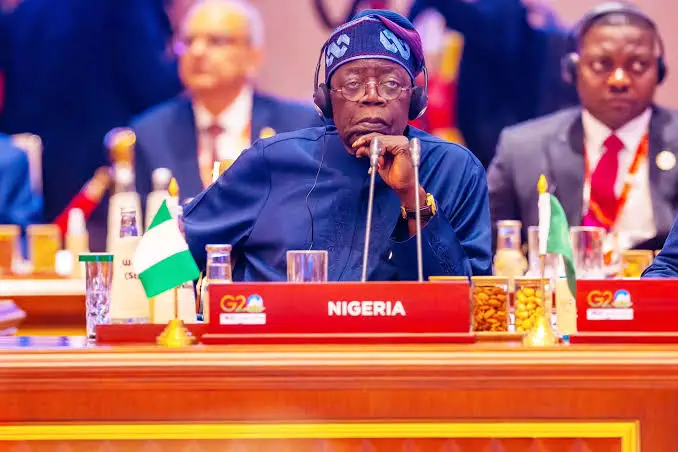X marks the spot
Nigeria is technically a poor country. Measured by every economic metric, we are poor. When many Nigerians I know observe the sheer enormity of the riches amassed by people with access to the national purse, and after eight years, they observe yet another set of people doing the same, and they also realise that that […]

Nigeria is technically a poor country. Measured by every economic metric, we are poor. When many Nigerians I know observe the sheer enormity of the riches amassed by people with access to the national purse, and after eight years, they observe yet another set of people doing the same, and they also realise that that will not stop another set doing just that after every eight-year cycle, they simulate this fantastical illusion about the infinity of Nigeria’s wealth. They swear that Nigeria is the richest country on earth, and they can prove it by the number of people who have stolen untold billions and trillions of naira.
The thing, however, is that real wealth is measured by the number of people with middle income. A middle income affords you all the basics of a comfortable life, but in the midst of this much poverty, even that is classified as being rich. You do not need to be rich to be able to afford most of the things that are beyond the pockets of the overwhelming majority of Nigerians, but that is where we are.
Nigeria’s $500 billion GDP comes to about $2,500 a citizen in terms of yearly per capita, and that translates into a little over six dollars a day. In reality, however, some 70 per cent of Nigerians live below the $2 poverty line. That in itself explains why so many of us don’t even realise what wealth is. We are so poor that the barest display of affluence overwhelms us. But we can actually turn that into a good thing.
In the madcap rush towards riches, we fail to notice the vast rivers of these same riches flowing right under our noses. If we are so poor, it only means there is so much wealth to be created. Wealth is simply value that has already been created and delivered. Now here is the thing: Nigeria is indeed an endless cash bazaar for the very fact of its desperate poverty, not the number of Nigerians who are super rich because they got away with theft.
The realisation that well over 100 million Nigerians live below the poverty line should then be a Eureka moment because the destitution and misery you see everywhere is the currency of value. Within a capitalist economic model, you solve problems through value and you deliver that value for something your target customers have in abundance.
What is missing is understanding what value is, what its creation process is and how to deliver it. The value creation process is at the heart of integrated thinking. Strategically, a business model is a central cog in the value creation process which turns valuable resources and relationships, or inputs, into results, or outputs, that create value for stakeholders and society, outcomes and impacts, that is. Value for target customers and other stakeholders is ultimately created or destroyed through the business and operating model.
Value is delivered to customers and society through responsible and profitable products, services, and channels to market. This involves understanding and leveraging strategic and intangible assets to deliver value in new and more effective ways. It also requires delivering value at an appropriate price, cost, and level of performance.
Delivering value requires integrated and relevant strategic, operational, and risk information that takes into account the changing economic environment such as the emergent “Tinubiyya” hell that has dwarfed the “Buhariyya” analogue. That ensures that performance is aligned to business and value creation objectives. A whole host of very valuable products and services can be created and delivered just on the basis of the Tinubiyya reality.
Delivering value involves doing things right in terms of delivering responsible products and services to the right stakeholder at the right time, place and price. Value can only be delivered when products and services and other outputs from the business model deliver stakeholder outcomes as well as long-term economic profitability.
To deliver value, therefore, involves effective decision-making processes, including profitability planning and improvement and project appraisal. These are enabled by an enterprise performance management approach that provides the necessary information around resources and processes, revenue, costs and risks in the context of business and value objectives.
Creating value is like algebra–transposing known facts to find the “spot”, meaning that it can be purposed to find the spot for value delivery. But you have to start looking at it not from the angle of economic statistics. If you look at the variables as the number of young people needing an education, the number of people needing healthcare, the number of people needing food, needing housing–and that’s every last one of them.
The two constants that must be accounted for however are that: these people must be productive somehow, meaning they must have something to be exchanged for the value they need, and fortunately enough, most Nigerians are not sedentary bums who cannot lift a finger to save their own lives; and that your value delivery model is fluid and innovative, in a way that effectively closes the circuit.
The ability to see, to discern this value and engineer a way to deliver it in a way that solves the problems that are everywhere around you is how to create value and by implication stupendous wealth. Our poverty is in actual fact the wealth waiting to be created.
If you want to amass vast riches legitimately, while solving the problems of your people this is where your sight should be. And that is on the lookout for the prospects of value everywhere around you. All it takes is basic algebra and the knowledge that X marks the spot.
